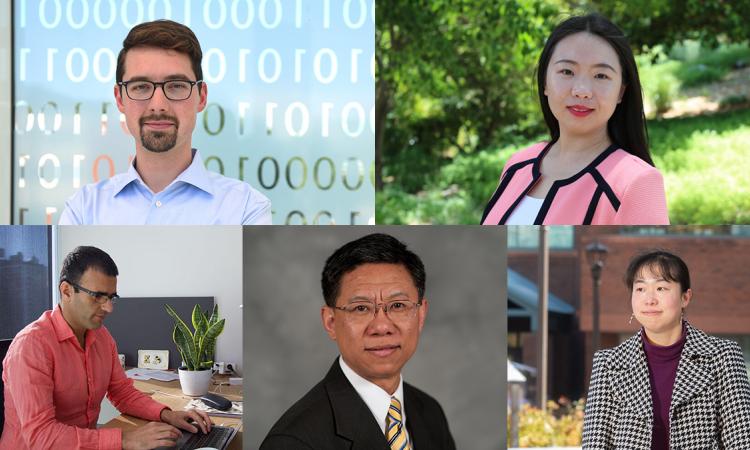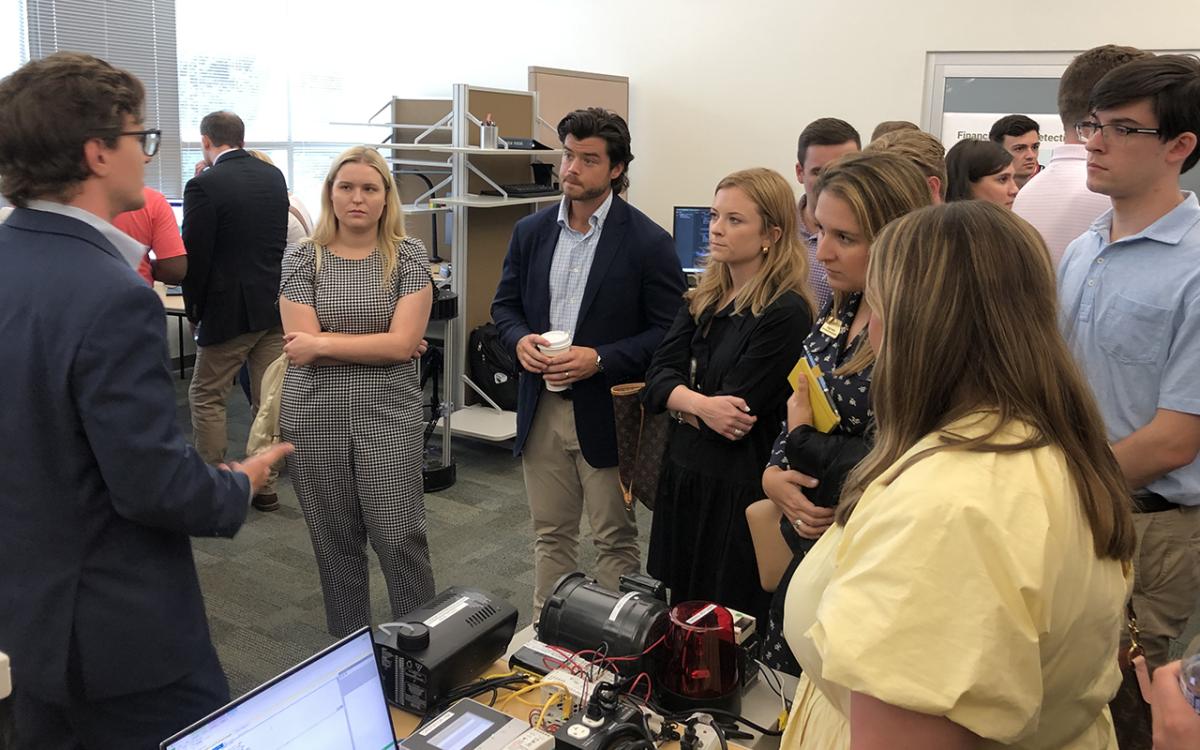
Georgia Tech recently hosted 23 United States congressional staff members on its Atlanta campus to highlight the Institute's cutting-edge advancements in cybersecurity and cyber-physical systems research and its pivotal role in securing critical infrastructure.
This visit, coordinated by Robert Knotts, executive director of Federal Releations, involved several activities including congressional staff members meeting with Georgia Tech President Àngel Cabrera and touring the Klaus Computing Building's Communications Assurance and Performance Group (CAP) and the Cyber-Physical Systems Security Lab (CPSec).
Given the escalating frequency and sophistication of cyberattacks, cybersecurity stands as a paramount concern for the United States government, ensuring the protection of government systems, economic interests, and citizens' privacy.
Saman Zonouz, an associate professor in the School of Cybersecurity and Privacy (SCP) and the School of Electrical and Computer Engineering (ECE), emphasized that the visit was an optimal moment to exhibit the Institute's leadership in the field. As a leading engineering school with a strategic focus on cybersecurity, Georgia Tech is the only top university in the country with a dedicated school for cybersecurity and privacy.
“This puts us in a unique position to lead research on secure engineered systems worldwide,” said Zonouz, who is the director of the CPSec Lab.
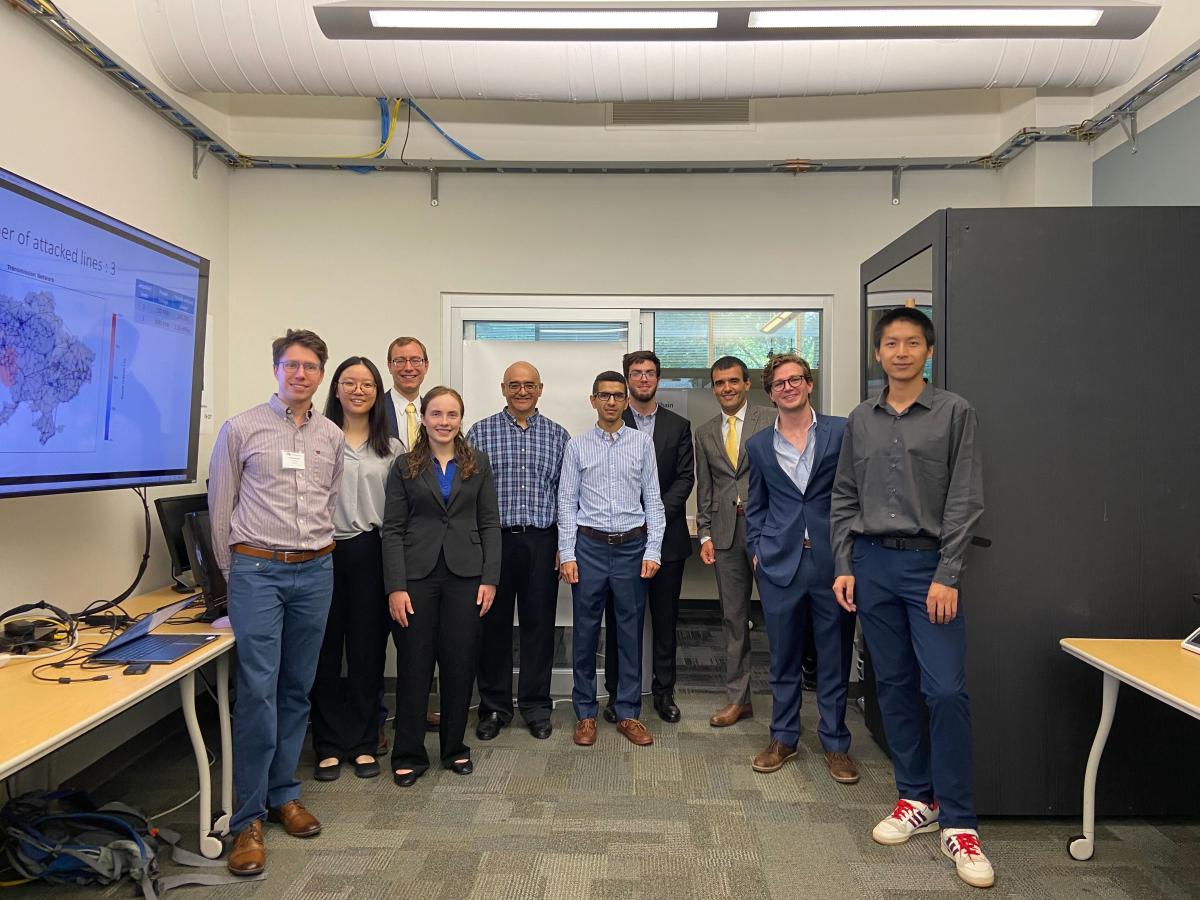
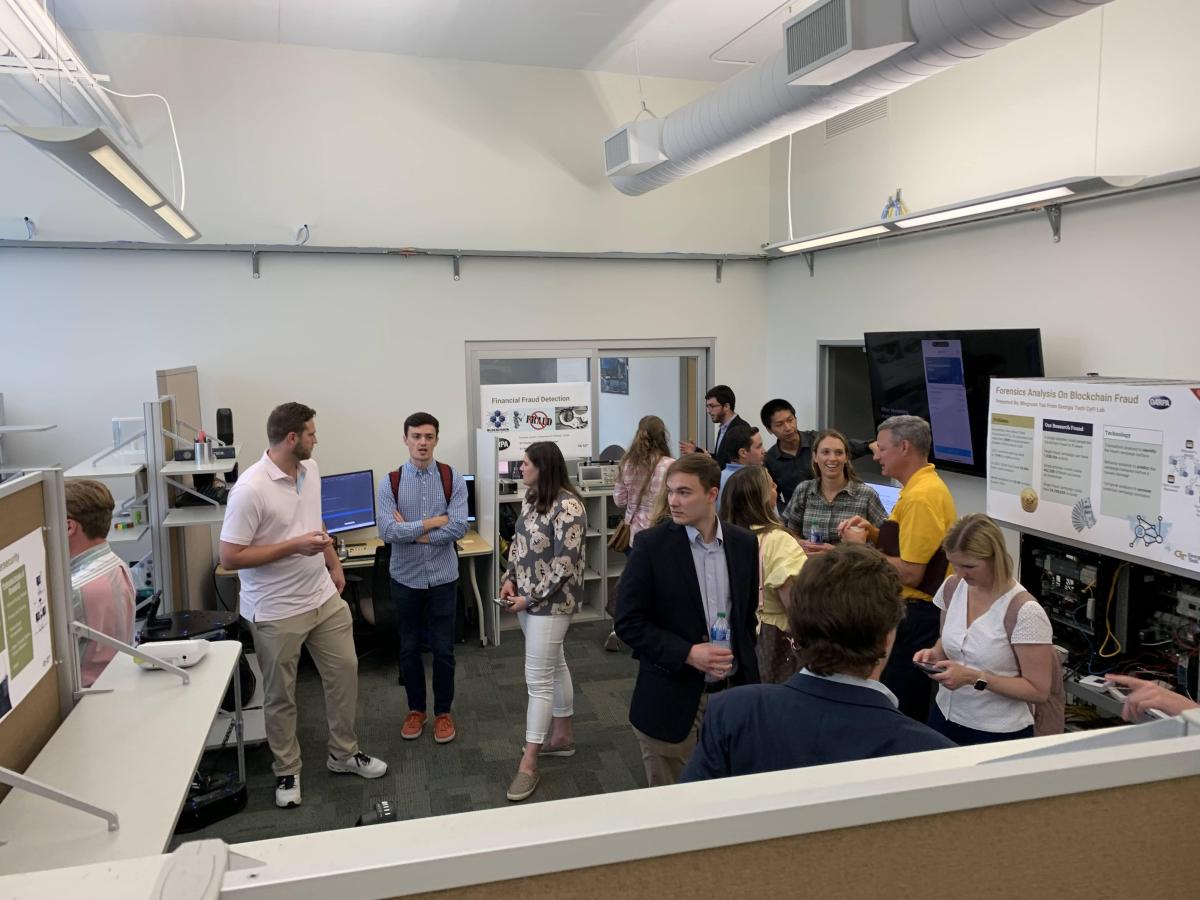
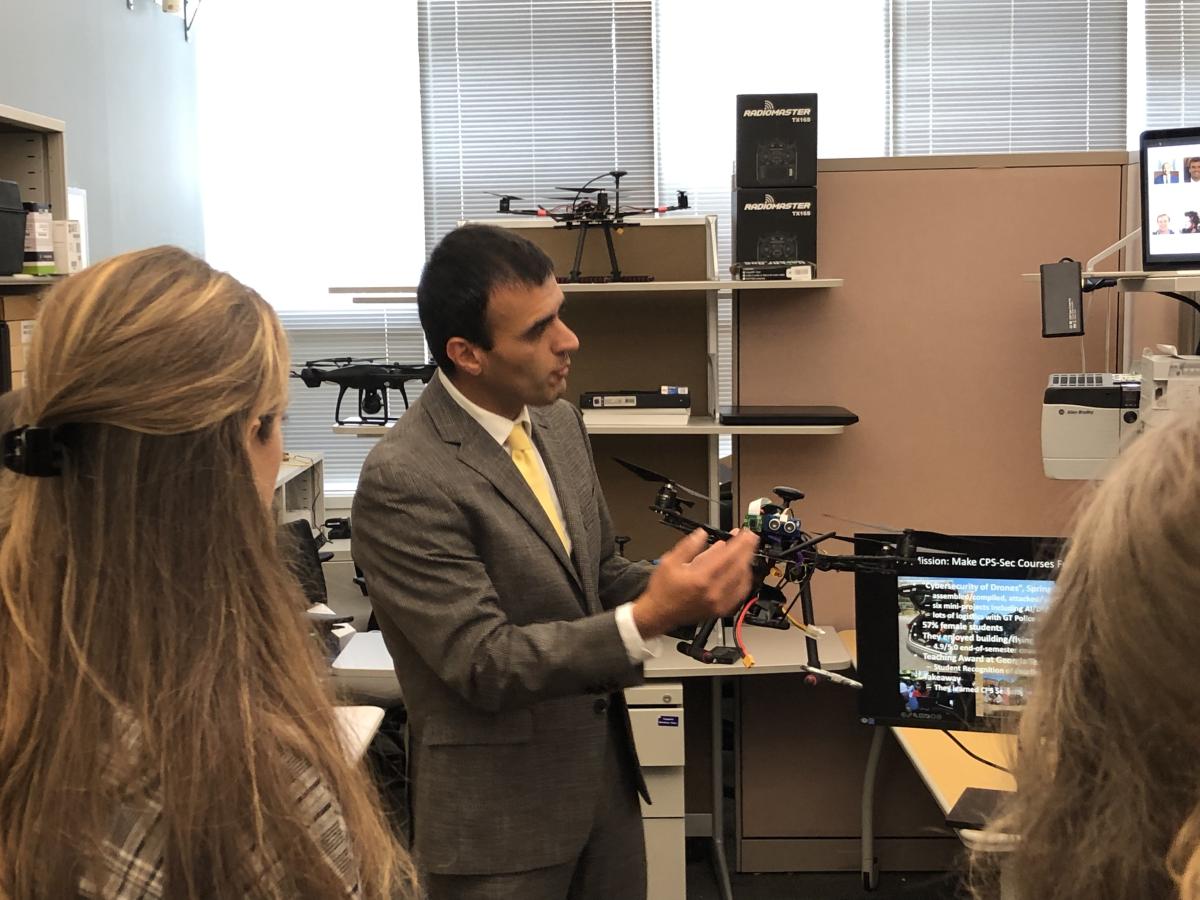
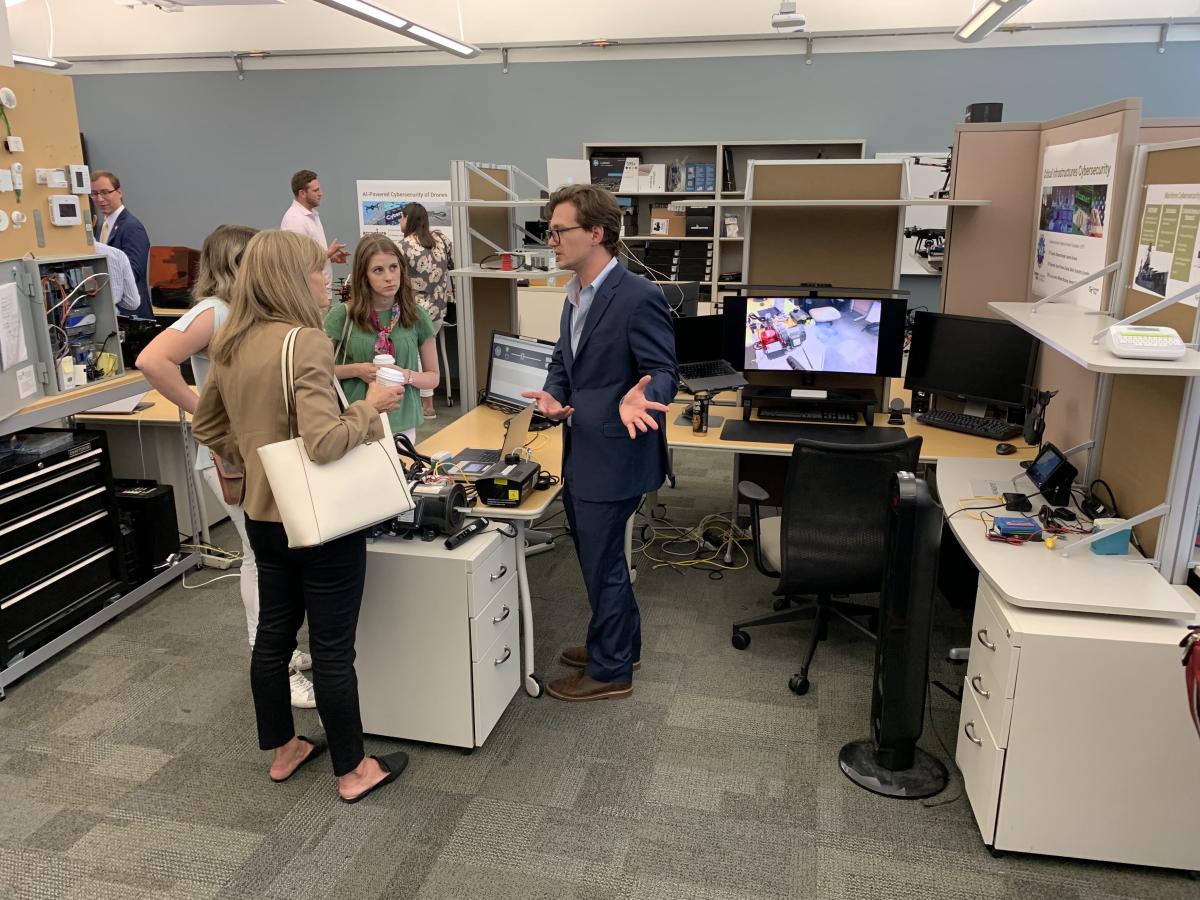
Photos during the United States congressional staffers tour of the Cyber-Physical Systems Security Lab (CPSec) at Georgia Tech on August 31, 2023.
Throughout the tour, Georgia Tech researchers from the College of Engineering and SCP showcased cutting-edge cyber-physical systems (CPS) security research led by Zonouz and fellow professors Raheem Beyah, Santiago Grijalva, Daniel Molzahn, Brendan Saltaformaggio, and Christopher Saldaña.
The tour also included visitors from Georgia Tech Research Institute (GTRI). Georgia Tech is actively engaged in CPS research projects spanning the 16 national critical infrastructure sectors as outlined by the U.S. Department of Homeland Security, including domains like critical manufacturing, energy, and healthcare.
Some of the featured demonstrations and researchers included:
- Cybersecurity for the $65M Georgia AI Manufacturing (GA-AIM) technology corridor.
- Featured researchers: Ph.D. candidates Nathan DeVol (George W. Woodruff School of Mechanical Engineering) and Yihan Jiang (ECE) demonstrated use of Generative AI to improve the trustworthiness of the emerging AI-enabled anomaly detection in manufacturing processes.
- Featured researchers: Ph.D. candidates Nathan DeVol (George W. Woodruff School of Mechanical Engineering) and Yihan Jiang (ECE) demonstrated use of Generative AI to improve the trustworthiness of the emerging AI-enabled anomaly detection in manufacturing processes.
- Protection of industrial control systems from threats by complex cyber attackers.
- Featured researchers: Ryan Pickren, a Ph.D. candidate in ECE has disclosed previously unknown security vulnerabilities in widely used industrial controllers (PLC devices) to vendors like Siemens, Rockwell, and Wago. His results will be featured at the Network and Distributed System Security (NDSS) Symposium in February 2024.
- Featured researchers: Ryan Pickren, a Ph.D. candidate in ECE has disclosed previously unknown security vulnerabilities in widely used industrial controllers (PLC devices) to vendors like Siemens, Rockwell, and Wago. His results will be featured at the Network and Distributed System Security (NDSS) Symposium in February 2024.
- Secure control for power grid infrastructures and automated malware analysis.
- Featured researchers: ECE Ph.D. candidates Mohannad Alkhraijah, Rachel Harris, and Mingxuan Yao demonstrated effective secure control and forensics algorithms against adversarial parties on two critical infrastructure sectors of energy and finance.
- Featured researchers: ECE Ph.D. candidates Mohannad Alkhraijah, Rachel Harris, and Mingxuan Yao demonstrated effective secure control and forensics algorithms against adversarial parties on two critical infrastructure sectors of energy and finance.
- GridTrust, a cybersecurity technology leveraging the unique digital fingerprint of individual semiconductor chips.
- Featured researchers: Professor Grijalva demonstrated the solution that aimed at safeguarding electrical utilities' equipment from malicious attacks.
“We are constantly expanding our collaboratively funded projects to address the cybersecurity needs of various engineering disciplines,” said Zonouz. “We look forward to even more critical infrastructure protection initiatives at Georgia Tech with cross-sector joint resilience and security considerations in the near future.”
Related content
Cyber Faculty Sets Out to Protect Nation’s Investment in AI Manufacturing
Associate Professor Saman Zonouz will research ways to protect Georgia Tech's investment in AI manufacturing.
New Fellowships Support High-Impact Cybersecurity Research
New Cybersecurity Fellows to grow the College of Engineering’s work in high-impact cyber-physical systems security.
(text and background only visible when logged in)

